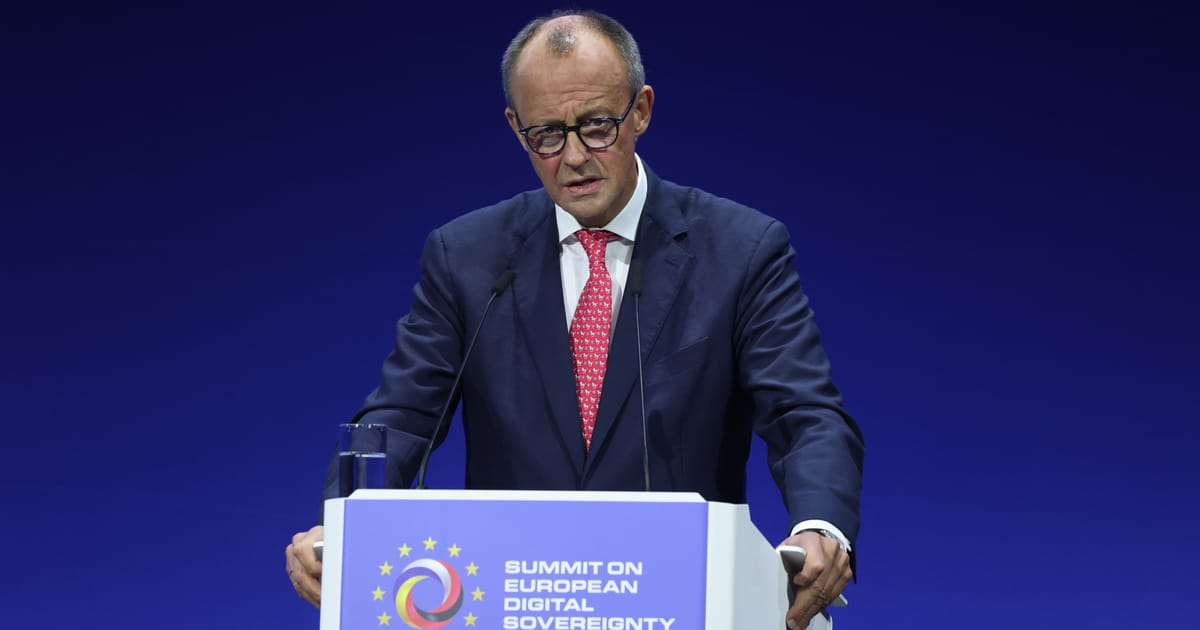Recent outages from major U.S. cloud providers as well as massive shortages in the chip industry “showed us that we are dependent on digital technologies from China and the U.S.,” and “these dependencies are being used for power politics,” Merz said.
Sharing the stage, French President Emmanuel Macron said: “Europe doesn’t want to be the client of the big entrepreneurs, or the big solutions, either from the U.S. or China.”
As the two leaders openly warned of the “costs” of digital dependency, their words illustrated a remarkable convergence in an area that has long seen markedly divergent approaches. In Paris, sovereignty has been about forcefully prioritizing local champions and breaking reliance on the U.S., while Berlin has focused on boosting innovation without severing important trade ties.
As the sheer dominance of American tech giants raises genuine questions about how Europe can achieve sovereignty in a meaningful way, the two countries used the Berlin event to outline a host of initiatives they argue will move the needle.
That included promises to move forward with earmarking European solutions for public technology contracts, keeping European data fully shielded from foreign snooping — and even confronting abusive dominance by major U.S. cloud providers.
In perhaps the most explosive move of the day, France and Germany backed a call from Brussels to bring the largest cloud computing players, Amazon Web Services and Microsoft, within the scope of its landmark antitrust regulation. The EU also announced parallel investigations into the two services that could serve as a direct hit on the U.S. titans.
